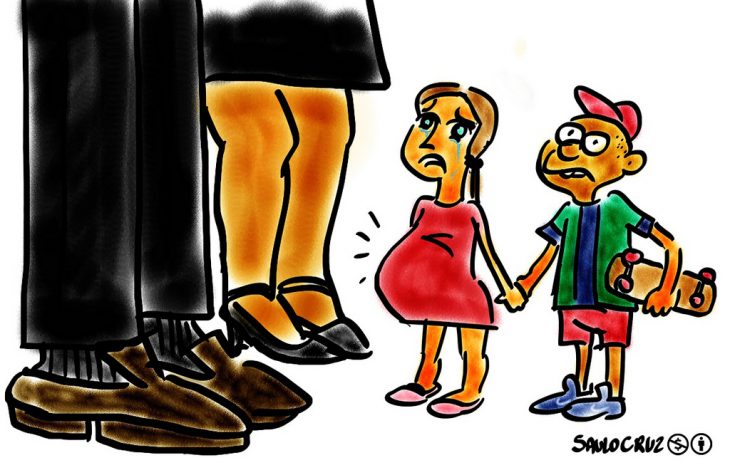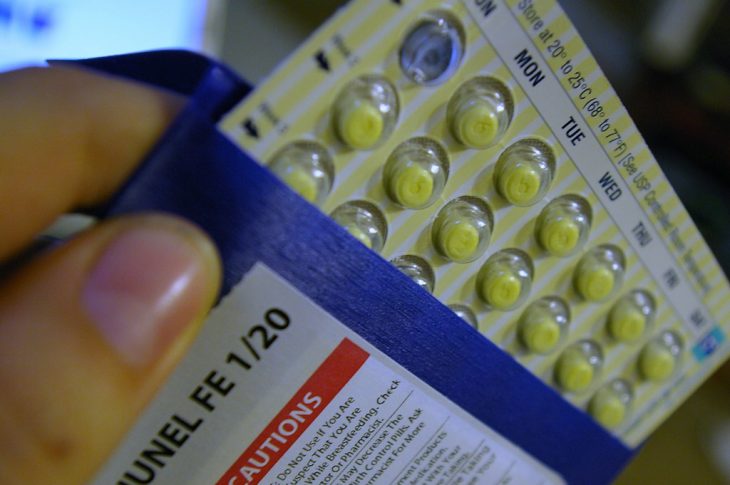When she's not writing, Tazeana spends her day YouTubing cat…

We’re going to talk about an issue that’s both personal and national. Contraception. Or lack of thereof.
It’s personal because it has affected many people close to me and other people close to them. It’s national because it affects more people than we realize.
The conversation about contraception, and all that’s associated with it – safe sex, STD, unplanned pregnancy, etc. – must continue. It must. Because if we don’t talk about a problem, chances are, we don’t care about finding a solution.
And that’s too bad because the country is currently facing an epidemic.
The Philippines Has the Highest Rate of HIV in the Asia-Pacific

Did you know that Philippines has the fastest-growing HIV/AIDS epidemic in the Asia-Pacific? And yet, condoms are still a gray area for many sexually active Filipinos.
A 2015 survey by the Department of Health (DOH)sheds some light in the matter: among those who don’t use condoms, 37.82% said it’s because condoms are unavailable; 26.39% claimed they “don’t like condoms”; while 20.15% said they don’t see the need for condoms. Some simply forgot to put one on, while others admitted to not knowing how to use it at all.
According to the World Health Organization (WHO), condoms are effective in preventing HIV and other sexually transmitted diseases (STDs) when used correctly.
The problem, apart from the conscious, upfront refusal to use condoms, is ignorance. As of 2013, more than 13% of Filipinos didn’t know that using condoms can reduce the risk of HIV.
Sadly, this lack of awareness is not limited to condoms, stretching across many aspects of contraception and the practice of safe sex. Advocacy about HIV prevention in the Philippines is “woefully inadequate,” and the push for safe sex in mainstream media is simply lacking.
Given the poor state of the nationwide effort to address the HIV problem in the country, the figures continue to rise.
About 10,500 Filipinos were diagnosed with HIV at the end of 2016, up from 4,300 in 2010. A total of 1,962 new cases of HIV were reported in July and August 2017, while 118 deaths were recorded within the two-month period.
The unsavory, fatal consequence of unsafe sex is staring us in the face, yet many choose to indulge in the unfounded luxury of declaring, “It just doesn’t feel as good with a condom.”
Apparently, this is the prevalent sentiment among sexual partakers, and not just among your circle of friends.
Okay, so condoms aren’t exactly conducive for optimal sex. But they could be the thin line between life and death. Pleasure in exchange for a high risk of infection and mortality? Seems like a fair trade for some.
The Philippines is the Only Country with Rising Teenage Pregnancy

Countries all over the world are experiencing a decline in teenage pregnancy, except the Philippines.
According to a 2016 UN study, clueless, young and sexually active young Filipinos contribute to the country’s rising number of unwanted pregnancies. The survey found that one in 10 Filipino women aged 15 to 19 has given birth.
The root problem stems from lack of access to appropriate information and health services, the United Nations Population Fund (UNPFA) explained.
Low condom use, multiple partners, and an overall lack of awareness that “having unsafe sex would lead to pregnancy” all contribute to the unfortunate trend.
According to UNFPA, young people are less likely to use condoms with romantic partners, mistaking them for a sign of promiscuity.
Unplanned pregnancy plagues both young and the old. More than half of all pregnancies in the country are unintentional, and 90% of those are due to a lack of birth control and access to family planning information.
All these points reflect a common theme: men and women don’t know any better, and therefore can’t act any better. Another nagging problem is because abortion is illegal in the country, pregnant young women resort to unsafe and unsanitary abortion services, resulting in 1,000 deaths and tens of thousands of hospitalizations each year.
To improve the current situation, the UNFPA recommends enforcing laws to grant young people access to contraceptives and reproductive health information and services, as well as improving sex education.

In November last year, the DOH bought P200 million worth of birth control pills and injectables after the temporary restraining order (TRO) on abortifacient contraceptive products was lifted. This was all thanks to the maneuver by the Food and Drug Administration (FDA), which declared that none of the 51 contraceptive products was abortifacient.
The government’s push for safe and informed sex is still far from perfect, but advocacy groups are taking arms to further the movement.
On our part, we must never shut up. The people who know better must continue the conversation about safe sex and contraception. It doesn’t need to be in front of a crowd. It can be as simple as reminding your friends to pack a spare condom, or to keep track of the last time they were on the pill.
I hope we can all start today.
What's Your Reaction?
When she's not writing, Tazeana spends her day YouTubing cat and dog videos and daydreaming about Jollibee fried chicken.


